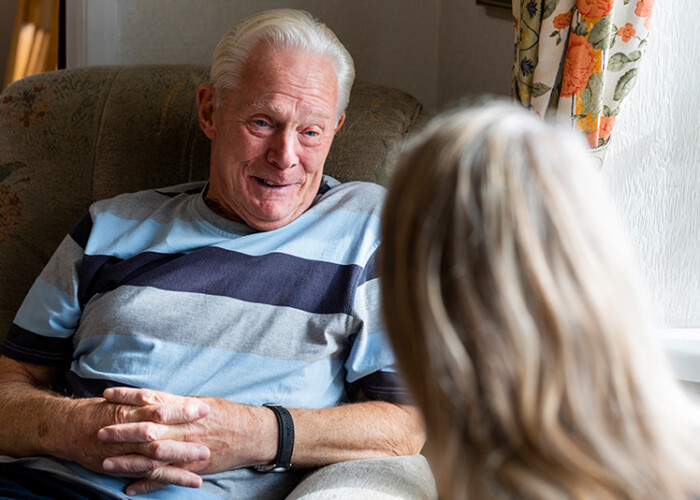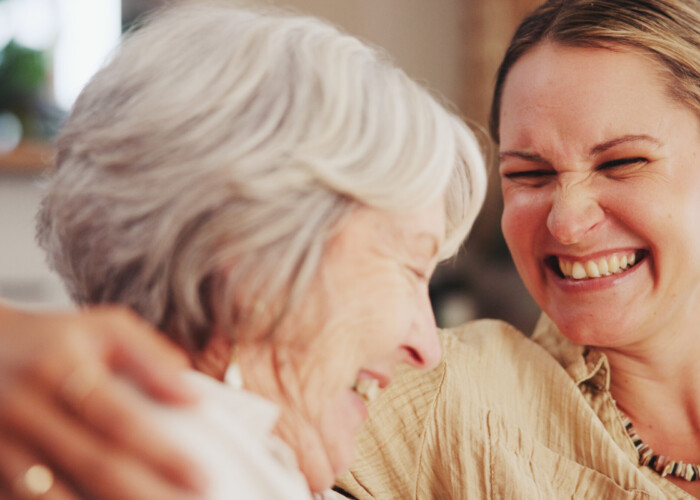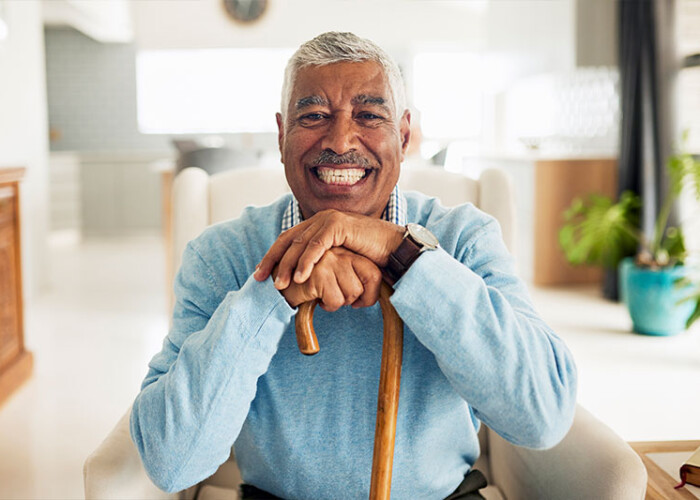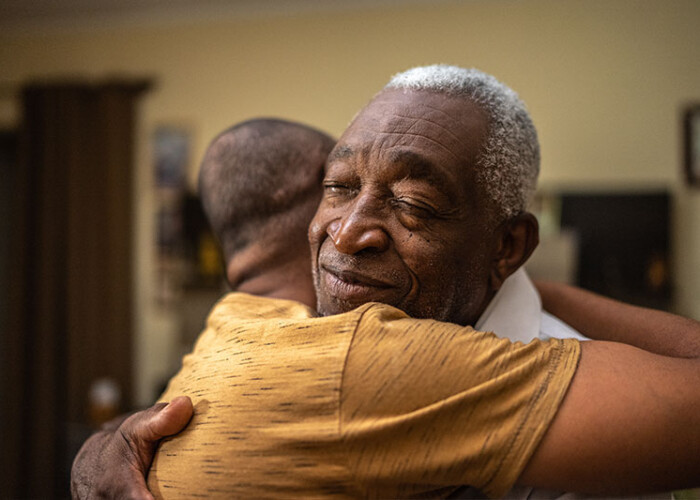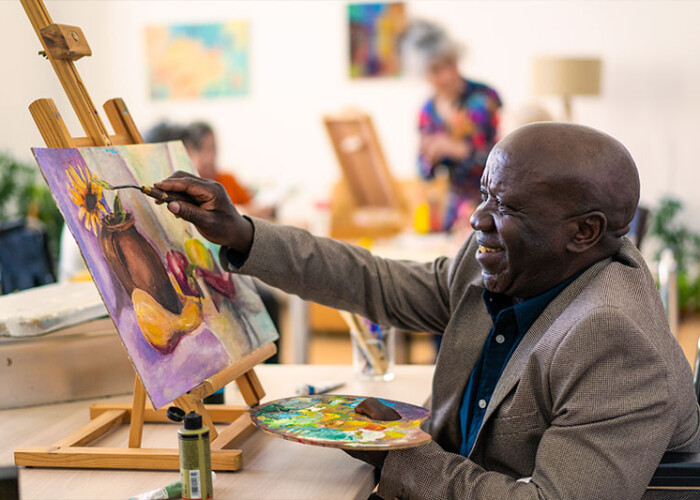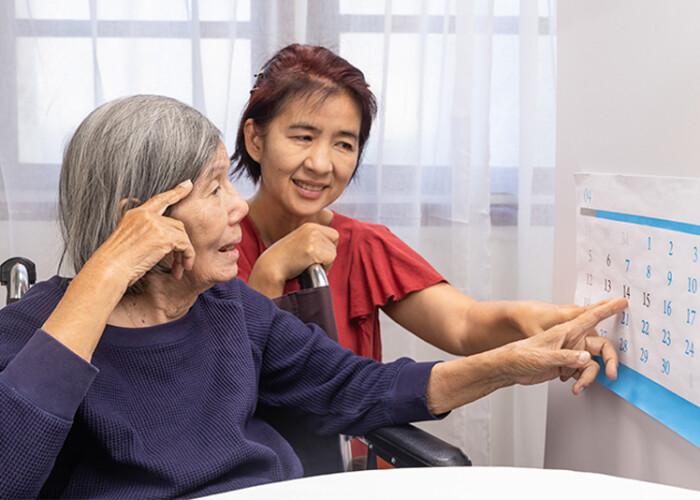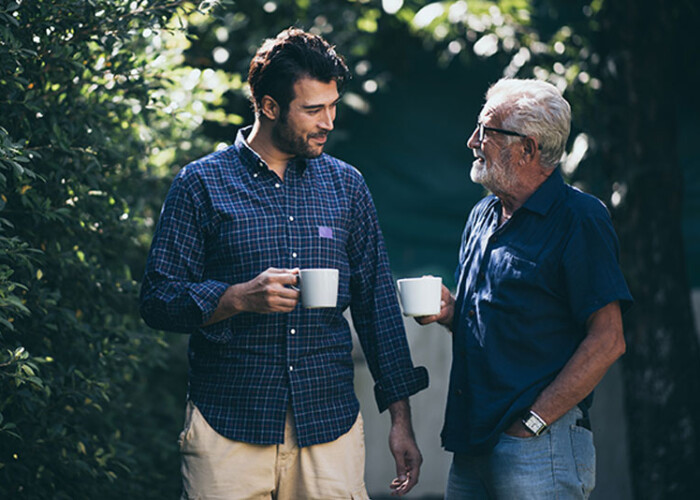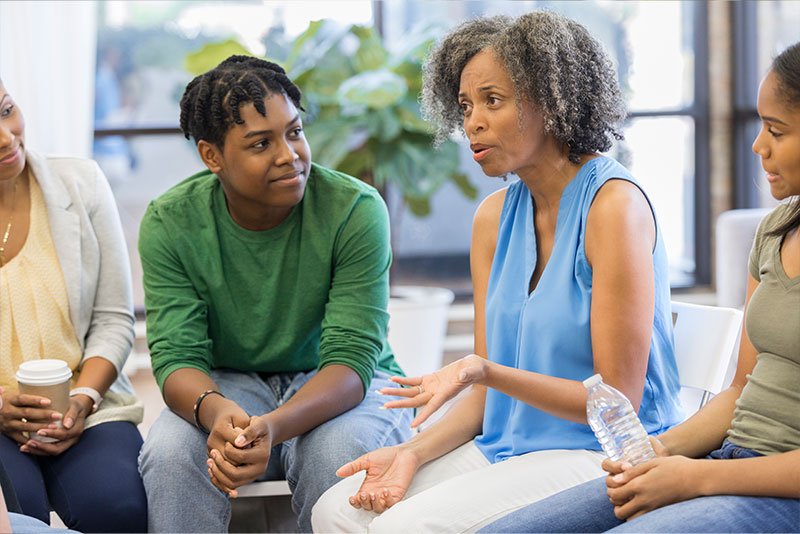Anxiety
Let’s Talk About Dementia – In a Healthy Way
Improv is one creative dementia care strategy that can be both effective and fun.
Receiving a diagnosis of dementia is never easy. It kicks off an emotional rollercoaster of fear, anxiety, uncertainty, grief, and more, all of which are heightened if the diagnosis is given starkly, without empathy or compassion. There are steps doctors can (and should) take when delivering a dementia diagnosis to ease the initial impact, empowering and equipping the individual and family with knowledge and support.
This Tactic to Improve Emotional Health in Seniors May Surprise You!
Try this one effective strategy to boost emotional health in seniors and see the difference it can make!
When caring for an older adult, it’s natural to focus on physical health: blood pressure, medications, diet, and mobility. But what about the unseen risks? Emotional health in seniors plays just as critical a role in overall well-being. Loneliness, stress, and depression can all silently chip away at health, making recovery slower and daily life more difficult.
Is It Anxiety, Depression, or PTSD in a Senior Loved One? Here’s How to Tell.
It’s important to recognize the signs of PTSD in a senior loved one and know where to turn for help.
A sudden crack of fireworks booms overhead, and the person next to you stiffens. A song drifts through the room, and you notice a shift in their expression. For someone who has lived through trauma, everyday sights, sounds, and smells can be powerful reminders of painful experiences. What might appear to be nerves, stress, or even age-related changes can actually be something much more complex: PTSD in a senior loved one.
How to Conquer the Fear of Falling in Older Adults
Don’t let the fear of falling in older adults hold back someone you love from living life to the fullest!
Aging brings wisdom, perspective, and cherished memories—but it can also bring new worries. One of the most common concerns is the fear of falling in older adults. While understandable, this fear can quietly steal independence, limit activity, and lead to feelings of isolation. In fact, many people avoid walking outdoors, exercising, or even socializing because they worry about losing their balance.
What Are Catastrophic Reactions in Alzheimer’s, and How Should You Handle Them?
Learn about catastrophic reactions in Alzheimer’s, including what to watch for, how to prevent them, and how to manage them if they occur.
Caring for someone with Alzheimer’s is a little like walking through shifting sands. Just when you think you’ve found steady ground, the landscape changes. One of the most startling effects you may encounter is what’s known as catastrophic reactions in Alzheimer’s disease—a sudden, overwhelming emotional outburst that can erupt from something as simple as a routine question or a minor change in environment.
Brush Up on the Benefits of Art for Seniors
From painting to poetry, the benefits of art for seniors include memory support, emotional healing, self-confidence, and more.
It might start with a paintbrush, a lump of clay, or a blank sheet of paper. But what happens next can be truly transformative. For older adults, engaging in creative expression is good for the brain, the heart, and the soul.
The Unexpected Challenges of Supporting an Older Adult Through Grief
Loss is never easy, but it tends to feel even heavier with age. After a lifetime of building meaningful relationships, each goodbye can feel like a piece of the heart breaking away. If you’re supporting an older adult through grief, you may feel unsure of what to say or do, but your presence and empathy can make all the difference.
When to Use Dementia Reality Orientation and When to Let It Go
Dementia reality orientation can help or hurt, depending on how and when it’s used.
Did you ever wake up in the middle of a dream and wonder, just for a second, if what you were dreaming was real? That groggy, surreal confusion can feel unsettling, until your brain catches up and you remember where you are. For someone with dementia, that moment of uncertainty doesn’t always pass. Confusion about time, place, and identity can linger, shaping their entire day.
Struggling to Let Someone Lighten Your Caregiving Load? This Might Be Why.
Learn why it’s so important to allow someone to help lighten your caregiving load, and why you may be feeling so resistant to the idea.
The moment Mom is discharged from the hospital, you exhale, believing the toughest part is finally behind you. But instead of bouncing back, she seems drained, anxious, or even weaker than before. She’s struggling with simple tasks, isn’t sleeping well, and feels overwhelmed.
This wasn’t how you pictured recovery. Instead of a turning point, it feels like she’s slipping backward.
What’s going on?
The Unexpected Challenge of Post-Hospital Recovery
Leaving the hospital doesn’t always mean the body is ready to heal. Many older adults experience post-hospital syndrome—a state of extreme stress and vulnerability that can slow recovery, lead to new health complications, and even increase the risk of readmission.
Stress plays a bigger … Read More »
What Is Senior Social Frailty and Who Is at Risk?
It’s easy for older adults to slip into spending too much time alone, which can lead to senior social frailty.
Not so long ago, we were all taking precautions to protect ourselves and loved ones from the spread of COVID-19. For older adults, who were especially vulnerable, this meant isolating at home and avoiding social interactions. While these measures were necessary for safety, they created a new norm of solitary living for many seniors—one that has persisted long after the height of the pandemic and is causing a condition known as senior social frailty.


